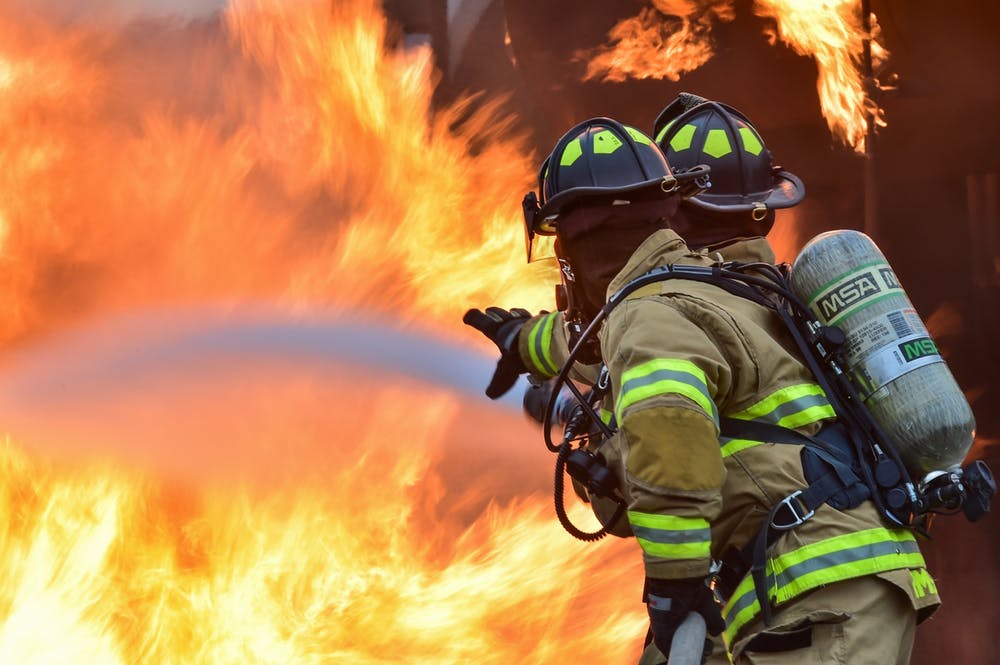 A Few weeks ago we saw the disaster brought about the huge flooding that affected many parts of Nigeria especially the Lekki area of Lagos. The flooding was a disastrous one as it lead to loss of valuable properties of its victims.
A Few weeks ago we saw the disaster brought about the huge flooding that affected many parts of Nigeria especially the Lekki area of Lagos. The flooding was a disastrous one as it lead to loss of valuable properties of its victims.
While experts are not always reliable basis for our safety plans and projections, we can never go wrong by putting some emergency measures in place to avoid being victims of disasters.
When fire breaks out, people become casualties mostly not because of the fire itself but because upon remembering a certain document or certificate, they run back to the fire hoping to quickly retrieve such items and come out of the fire safely, only to get trapped in the thick smoke and suffocate to death.
If victims had been prepared for such an emergency, they would have had their certificates and other few vital items in a safe location so that upon any emergency, they would easily pick such item and quickly run for their lives amidst the confusion that such situations usually come with.
Therefore, in as much as we do not pray for any emergency, we need to understand that to keep safe during an emergency, we must be prepared for it. We have nothing to lose by being emergency conscious.
Tohelp you understand what steps to take in keeping safe during a disaster, we have put together these 5 safe steps you can take in an emergency.
1) KEEP YOUR SURVIVAL BOX HANDY What is a survival box? This is a bag/box that contains items such as certificates, touch light, biscuits, bottled water, first aid, radio and other items that can sustain you for a few days if you have to evacuate your house immediately.
For your important documents, it is advisable that you have copies kept in alternative location. You should have your survival box placed in a safe space and all members of the family must know its purpose.
It is also advisable that you check the items in the box occasionally to replace items that are expired with new ones so that such items do not cause any harm when used.
2) DEVELOP A BASIC DISASTER PLAN FOR YOUR FAMILY
Plan ahead a place where family members can meet in the event of an emergency.
This is because usually when there is an emergency, mobile networks often get overloaded and fail as many family members will be trying to reach their loved ones at the same time in the same area.
Find out where the safest and nearest shelter is located and know your evacuation routes.
Ifyou family members are in school and disaster strikes, would you have to pick them or would they know the nearest safest shelter to hide?
You should answer all these questions as you review your emergency plan with your family every year.
3) REVIEW YOUR INSURANCE POLICY
In this part of the world, not many people are exposed to insurance and many who subscribe to insurance plans only cover their vehicles and health insurance.
Whilevehicle and health insurance are very crucial, it is also wise to have a homeowner insurance which will cover the actual loss of a home or apartment in case of an emergency.
Thiswill drastically reduce the stress and financial implication in an aftermath of a disaster.
4) HAVE AN EMERGENCY CONTACT LIST This list should include your family doctors, utility companies, insurance carriers and other bodies or institutions that could be of immediate help during disaster.
It is advisable that you have a hard copy of such contacts and keep in a place where it can easily be retrieved if your home becomes inaccessible upon a disaster and make sure your family members all know where to find the list in an emergency in order to reach helpful contacts.
5) KNOW WHAT STEPS TO TAKE AFTER A DISASTER
Stay in a safe place and resist the temptation to check on your property until you are sure it is safe to do so.
If it is flood, a few inches can make you fall down, and fast – moving water can carry a person off so quickly than they can imagine.
If you have to walk through water, look for where the water isn’t moving. Stay far away from streams, sewer, drains and man-made channels or drainage canals.
What other measures do you think you can put in place to prevent some disasters in the first place?








